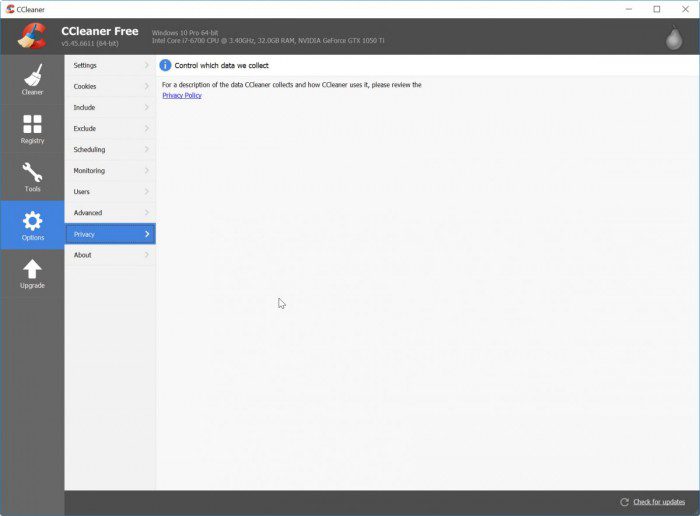Avast: Collecting data only improves CCleaner’s feature

Since the acquisition of Piriform by security software company Avast last year, some popular applications, including CCleaner, have also been included in Avast. CCleaner was hacked for more than a month in September last year, and the problem version download exceeded 2.27 million times. What is even more embarrassing is that Avast is continuously alienating CCleaner’s loyal user base. Yesterday, the foreign media BetaNews editor Wayne Williams wrote a potent attack and called on users to skip the latest version of the CCleaner app.

After the article was widely reprinted, Avast’s Piriform (CCleaner’s vendor) contacted Williams and clarified some of the issues in the article. The response is as follows:
“As part of our ongoing mission to improve CCleaner and deliver a better customer experience, we introduced some features in Version 5.45 aimed at providing us with more accurate data that would help us to detect bugs more quickly and let us know which CCleaner features are being used and which aren’t.
The information which is collected through these new features is aggregated, anonymous data and only allows us to spot trends. This is very helpful to us for the purposes of improving our software and our customers’ experience. No personally identifiable information is collected.
We value the feedback from our users and are currently working on our next version of CCleaner which will separate out cleaning functionality from analytics reporting, and offer more user control options which will be remembered when CCleaner is closed.
In the interests of transparency, we’ll also share a fact sheet outlining what data we collect, its purpose and how it is processed. We’re also taking the opportunity to redesign the data settings within CCleaner so they are communicated in a clear and easy to understand way. Building and testing software sometimes takes a little time to get right, but we are working hard to release our next version as soon as possible.”
In this regard, Williams believes that the company’s attitude to solve problems and take measures to deal with user complaints is a good thing. For example, Microsoft suffered a lot of criticism when it released Windows 10, but complaints about this increase with data transparency are gradually decreasing.





